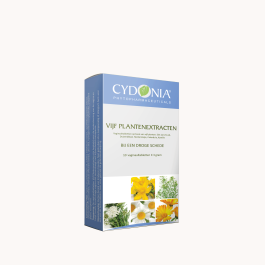Vaginal dryness and how to treat it
Lots of people deal with vaginal dryness, even people who aren’t in the middle of perimenopause by the way. It’s definitely a common issue that happens when the ovaries produce less estrogen. The hormone estrogen is in charge of keeping the vaginal soft and moisturized. Vaginal dryness is especially common before and during the menstrual period.
People also tend to start struggling with vaginal dryness after giving birth. Your body goes into overdrive with the production of estrogen during pregnancy. But once the baby is born, the estrogen production takes a nose-dive, which could make it feel like Dry Season has come to terrorize your vagina. This lack of estrogen production is also common during the perimenopause, which explains why vaginal dryness is so often used in the same sentence as (peri)menopause.
It’s definitely a common issue
Do you struggle with a dry vagina and do the following symptoms ring true for you? You could be dealing with vaginal dryness:
Itchy labia
Burning feeling at the entrance of the vagina
Pain during sex
Pain when peeing
Pain when biking or during activities that move/cause friction to your labia
Different odor (caused by a change in pH-level)
Endometriosis, kidney disease and diabetes cause the vagina to be drier than usual as well. Just like medicine and medical treatment such as:
Antidepressants
Beta blockers
Diuretics (water pills)
Antihistamines (treats hay fever)
Chemo
Dialysis
From Sahara desert to Atlantic ocean
We’ve listed some tips to prevent - or at least battle - vaginal dryness:
Wash your vagina with lukewarm water. Your vagina would like to tell you she’s perfectly capable of organizing her own home, thank you very much. So she doesn’t need any soap! Yes, that includes soap that’s created for the purpose of cleaning vaginas.
Avoid chemicals from swimming pools. The chlorine in swimming pools kills bacteria, which is great, if only it didn’t also kill the (very necessary) bacteria in your vagina.
Avoid laundry detergents, perfumed tampons, pads and moist tissues. Perfume affects the pH-balance of your vagina, which leads to vaginal dryness.
Let’s talk about sex!
All that dryness does not necessarily have to be the result of a change in your hormonal balance. A lower libido or lack of arousal, maybe because you’re not excited by the same old positions anymore, may cause vaginal dryness. Is your vaginal dryness interfering with your sex life? It might be time to take matters into your own hands. Talking about sex doesn’t just help make both you and your partner more aroused, it also makes you both more comfortable and helps instill trust. Do you feel like your previously favorite position is now so out of style, thanks to your vaginal dryness? Tell your partner. That’s the best way to get you and your partner on the same track in the bedroom.
Does your partner arouse you, but you’re not getting that wet regardless? Let’s lube it up! This makes everything run a little smoother… literally. But make sure you are actually aroused. Don’t use lube to bypass arousal, only use it as a helping hand. Arousal causes your vagina to swell (yes, like a penis) and to create space for the penis. Lube doesn’t fix either of those things!
We probably sound like a broken record at this point, but we have to mention: sex is more than just penetration. There are many ways to have a good sex life without penetration.
If you’re still unsure on what to do about your vaginal dryness, it’s never a bad idea to just visit your GP.


























